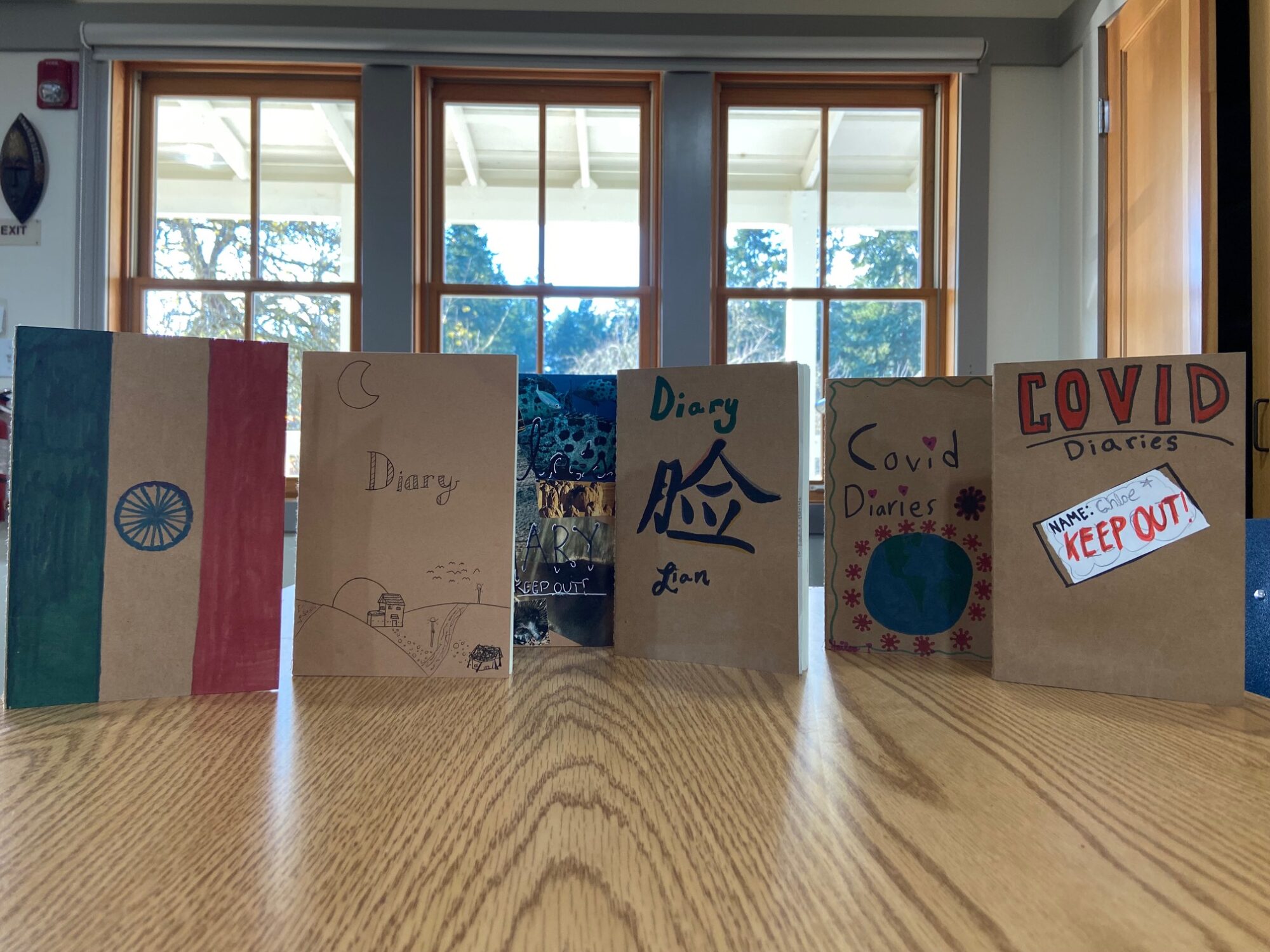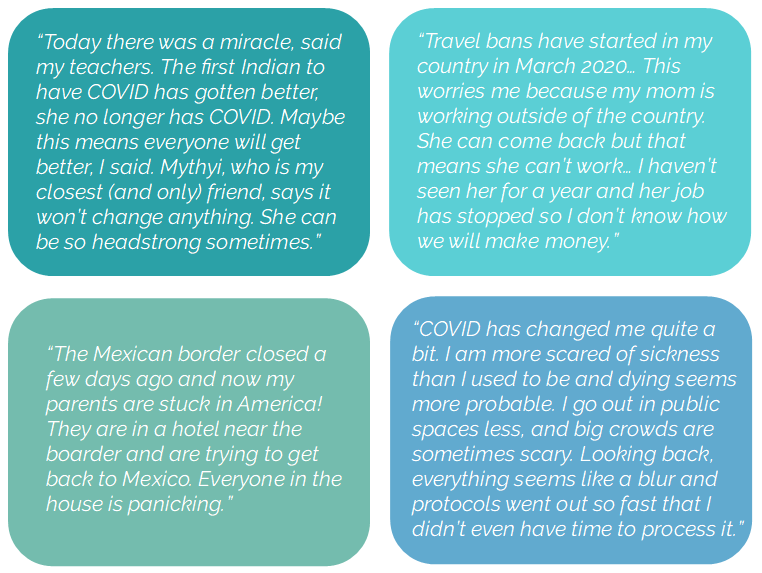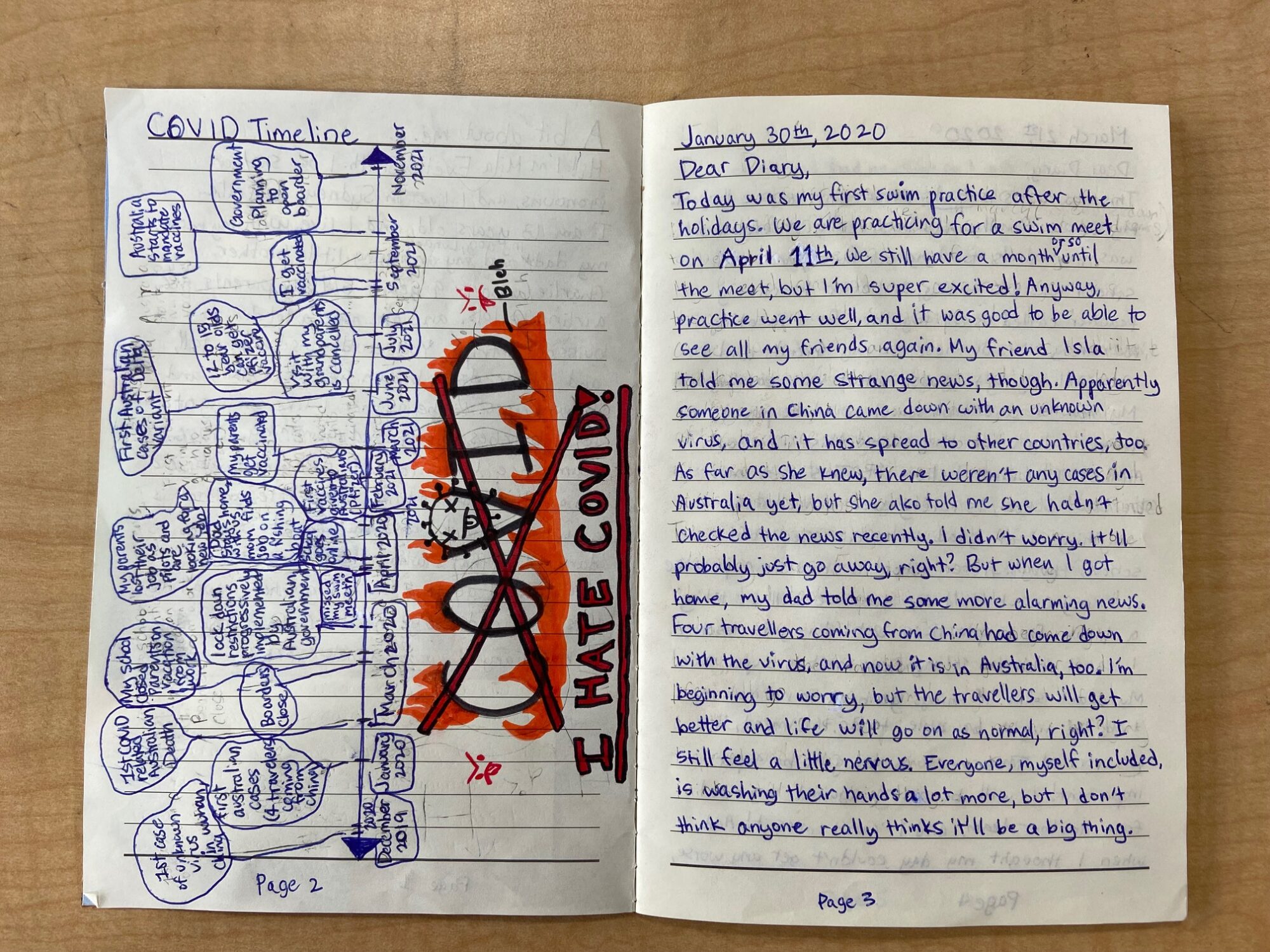Hyla Stories
Global Ed: COVID Diaries


Separation from family members, caring for siblings, food shortages, pets, school closures, depression, loss of employment – these are just some of the issues that surfaced in the fictional COVID diaries written by 7th graders. As Global Ed teacher, Deborah knew that COVID presents a “very tangible way for students to learn about interconnected global systems because they can draw on their own life experiences.” She chose the format of personal diaries so that students could “reach into personal knowledge about what it was like to have their own lives completed disrupted by this pandemic, and then apply that knowledge across the globe.” The resulting diaries are vivid and moving accounts, rich with nuance and detail, of the lives of adolescents around the world trying to make sense of life in COVID.
Each student was assigned a character from another country. “All their assigned characters are also 7th graders,” Deborah shared, “because I wanted them to be able to write from a place they know.” Before creating each diary entry, students were introduced to different global structures through mini units: migration, border closure, and travel bans; global health; trade, commerce, and supply chains. These mini units created the context for students to personalize the lives of their assigned characters. Students created country-specific timelines of major pandemic milestones, and then consolidated research and synthesized data to weave details into the personal narratives. Through research and data collection, students also drew global comparisons across key indicators of the pandemic, like transmission rates and hospitalizations, which also invited them to grapple with regionally relevant factors like life expectancy and air pollution, depending on the country where their character lives.
Different phases of the project created aha moments for students. For some it was making a bar chart with researched health statistics and seeing that life expectancy is only 50. “Getting into the complexities was very exciting for students because it really challenged their understandings and conceptions of global issues,” said Deborah. For example, “they learned that countries with younger populations are typically poorer, but that reality made them fare better during COVID, like in Nigeria where case counts weren’t as high.”
Another highlight for students was the chance to hear pandemic stories from real people around the world via Zoom interviews. Before each Zoom interview, Deborah presented an overview of each country to provide context for what students would learn and equip them to prepare informed questions for their Zoom guests: a counselor at an international school in Hong Kong, a USAID global health worker in Senegal, and an Australian working in green energy. “They were super into it and it was so cool to have that personal connection. One guest paned her screen around to show us her neighborhood. Another shared that in Senegal when students couldn’t go to school in person, they broadcast school on tv! We learned that laptops and internet connectivity are not widespread enough for Zoom school, but everyone in Senegal has a tv. Those details were fascinating to students.”
One of the highlights for Deborah? “What was so fun for me was reading the diaries to see how much their own voices came through.” She was also impressed by student empathy. “It’s easy to feel empathy for people that you know. It’s harder to feel it for people you don’t know. So when we were talking about a second wave of COVID infections in India, we were able to talk about a real person, a 7th grader, in Deli, feeling terrified – we could really imagine a real person going through that, and that’s the goal. What this unit teaches students is that regardless of difference – language, socio-economic status, urban or rural, every human life matters equally.” While these carefully researched memoirs showcase nuanced differences in how humans around the world experience COVID, the diaries also reveal something familiar and universal: resilience, resourcefulness, and courage in young people.

